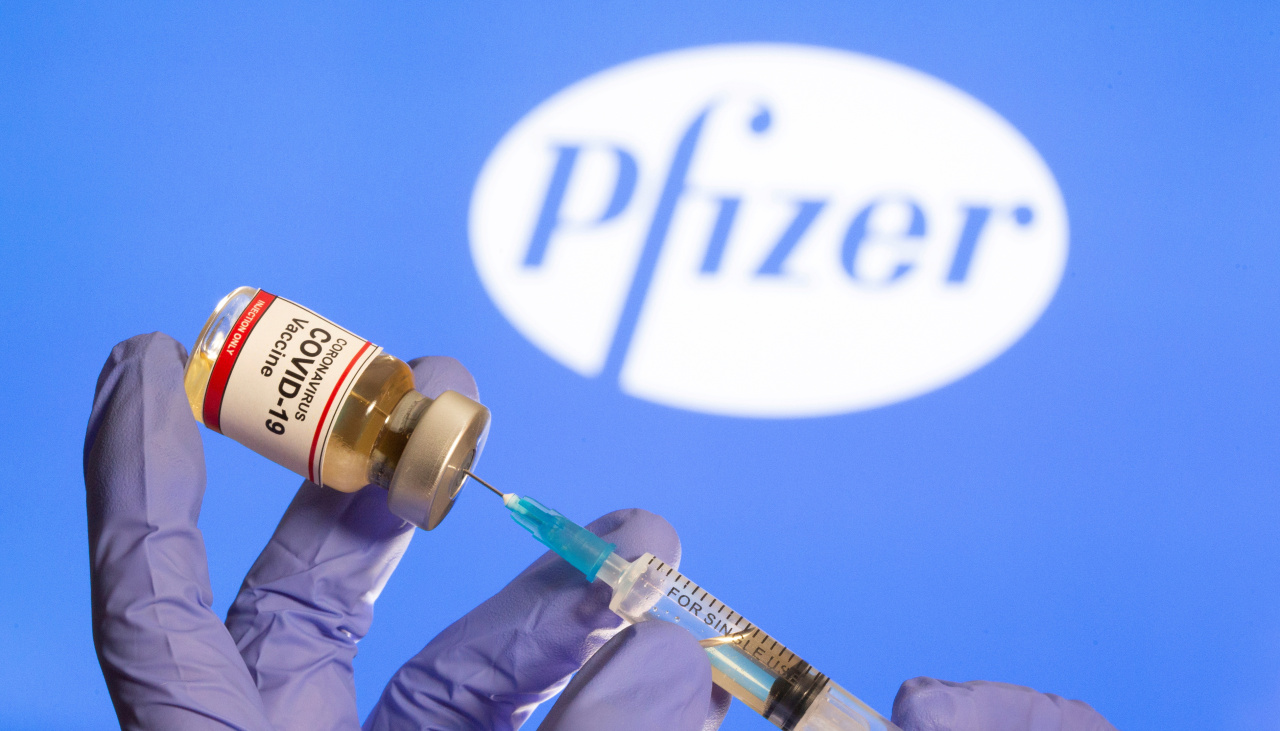
Hopes of the pandemic coming to an end are soaring with the latest vaccine results. But health officials and experts say normal life may not be within reach at least for another year, and that varying ranges of public health interventions may still be necessary even after a vaccine arrives.
The US drug giant Pfizer and its German partner BioNTech said in a press release on Monday an interim analysis showed their vaccine candidate was 90 percent effective in protecting people against the infection, offering what might be the first compelling evidence that a vaccine can prevent COVID-19.
In Tuesday’s closed-door press briefing held following the news of the Pfizer’s results, a senior Ministry of Health and Welfare official told reporters a vaccine was expected to play a “complementary role” to the existing coronavirus precautions -- suggesting even if a vaccine was available, it might not be the ultimate exit strategy.
“It’s still too early to tell how much of a game-changer a vaccine will be. But if we had a vaccine that works and were able to get a certain percentage of the population immunized, it would be a helpful addition to the preventive steps we are already taking to suppress the spread,” he said.
To return to a degree of normalcy, Dr. Anh Wartel of the International Vaccine Institute said “an integrated approach combining public health interventions and vaccination should be promoted,” over the next year at least.
Wartel, who is the institute’s associate director general, said in an email response, “Although (Pfizer’s vaccine) is highly promising, we need to remain vigilant. The end of pandemic is not yet imminent.”
Besides, there are several steps to go through before mass vaccination can be implemented, from large-scale production for the entire country to cold chain management, she added.
“Between now and then, once the approved vaccines are gradually deployed and administered, we should keep the safety measures that have been well established and followed by public -- at least in Korea with mask wearing and social distancing,” she said.
Unprecedented cold chain challenges are presaged with the upcoming coronavirus vaccines.
“Most of the vaccines are usually stored between 2-8 degrees Celsius, refrigerator’s temperature,” said the IVI’s associate director general.
“Among the frontrunner leading coronavirus vaccine candidates are mRNA vaccines that are not thermostable and require temperature-controlled supply chain and cold storage at -70 degrees Celsius.”
The temperature range is imperative in maintaining a vaccine’s potency, she said, from storage, distribution and ultimately to point of administration.
“Preparing and fortifying the cold chain and logistics for vaccine distribution should be anticipated to ensure that vaccines are not wasted. Training should also be planned for health care professionals on the frozen product preparation,” she said.
Recent cold chain blunders with flu shots in Korea had led to over a million doses being withdrawn.
Virologist Dr. Paik Soon-young, a professor emeritus at the Catholic University of Korea’s college of medicine, said Korea was “not in a rush” judging by the situation so far.
“With the daily number of infections kept at around 100, Korea may be able to hold on for longer without a vaccine. But this means we will have to continue to practice social distancing and buy time until a vaccine is ready for use here,” he said.
Public health authorities predict Korea would be able to start vaccinating people from the second half of next year.
“The feasible aim is at least after the second quarter of next year,” said the Korea Disease Control and Prevention Agency’s deputy chief, Kwon Jun-wook, during Tuesday’s briefing. “We want to be wary of all the possible side effects and keep an eye on the results in countries that are first to get vaccinated.”
But this strategy of “testing the waters” has its risks, said Paik. “If Pfizer’s vaccine ends up being the only one successful, Korea is not likely to end up with any.”
While Pfizer and BioNTech said they plan to manufacture some 1.3 billion doses by 2021, the two drugmakers have already made supply agreements with the US, the European Union, Britain, Canada and Japan.
Infectious disease specialist Dr. Kim Woo-joo of Korea University Medical Center in Guro, southern Seoul, said Korea probably had better chances of having a coronavirus vaccine by looking overseas than developing one domestically, two of which are still in early-stage trials.
Kim said Pfizer’s late announcement was a “silver lining” in the global race for a coronavirus vaccine, but that a lot of questions remained such as how long the vaccine-induced immunity would last and whether adverse reactions may manifest in the next few months.
Some of the significant challenges facing Korea will be how to “have enough supply to give over 50 million people two shots each and build a pricey cold chain technology that might never be used again,” he added.
Viral immunologist Dr. Shin Eui-Cheol of Korea Advanced Institute of Science and Technology said: “The pandemic will come to an end with or without a vaccine. But not in a way that can prevent lives being lost and livelihoods being devastated if we didn’t have one.
The best exit scenario would necessitate a vaccine.”
By Kim Arin (arin@heraldcorp.com)







![[Graphic News] More Koreans say they plan long-distance trips this year](http://res.heraldm.com/phpwas/restmb_idxmake.php?idx=644&simg=/content/image/2024/04/17/20240417050828_0.gif&u=)
![[KH Explains] Hyundai's full hybrid edge to pay off amid slow transition to pure EVs](http://res.heraldm.com/phpwas/restmb_idxmake.php?idx=644&simg=/content/image/2024/04/18/20240418050645_0.jpg&u=20240419100350)








![[KH Explains] Hyundai's full hybrid edge to pay off amid slow transition to pure EVs](http://res.heraldm.com/phpwas/restmb_idxmake.php?idx=652&simg=/content/image/2024/04/18/20240418050645_0.jpg&u=20240419100350)

![[Today’s K-pop] Illit drops debut single remix](http://res.heraldm.com/phpwas/restmb_idxmake.php?idx=642&simg=/content/image/2024/04/19/20240419050612_0.jpg&u=)